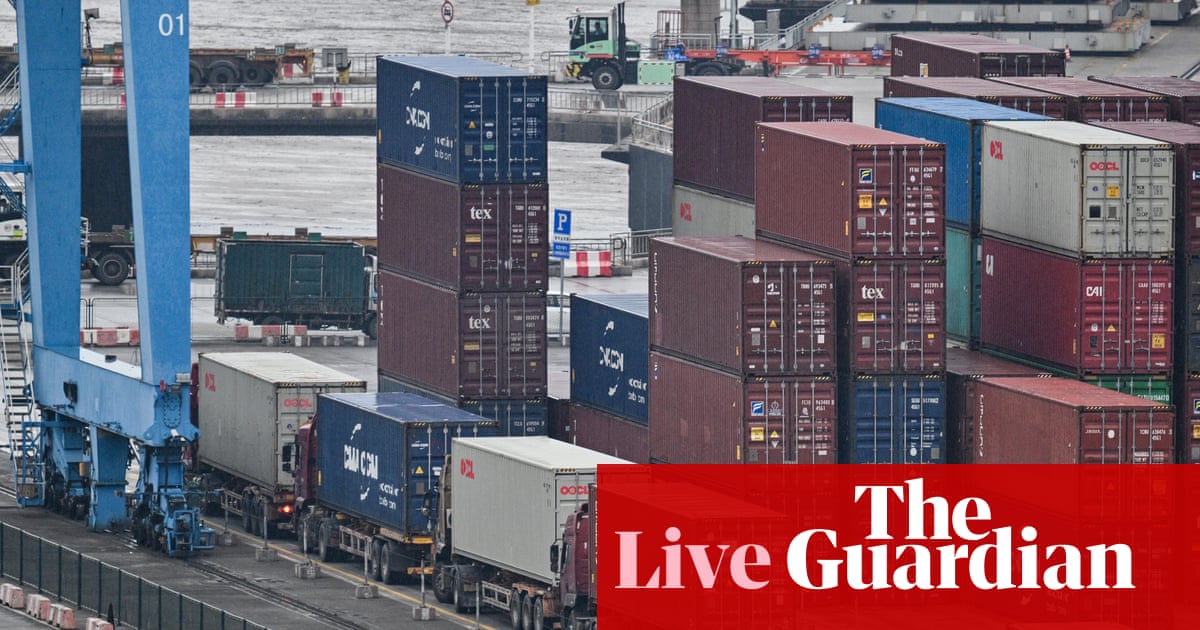Trade war fears don’t seem to have hurt the UK housing market last month.
Lender Nationwide has reported that the average house price rose by 0.5% duing May, reversing most of the 0.6% fall recorded in April.
This lifted annual house price inflation to 3.5%, with the average property now costing £273,427.
Robert Gardner, Nationwide’schief economist, says:
Treasury Secretary Scott Bessent suggested yesterday that the US and China were in dispute over critical minerals.
Bessenttold CBS’s “Face the Nation”:
Share prices in China have weakened today, pulling theCSI300share index down by 0.5%.
Hong Kong’sHangSengindex has slid by 1.5%.
In Japan, theTopixshare index has lost 0.9%.
Jim Reid, market strategist atDeutscheBank, points out that “it’s hard to see past trade at the moment,” adding:
Good morning, and welcome to our rolling coverage of business, the financial markets and the world economy.
Trade war tensions are on the rise again, as relations between China and the US deteriorate.
Beijing has hit back this morning against Washington, accusing the US of “seriously violating” the trade truce which the two powers agreed in Zurich last month.
China’s commerce ministry also promised to take forceful measures to safeguard its interests, rejecting a claim from Donald Trump last week that China has ‘totally violated’ its trade agreement with the US.
In a statement, the ministry said:
Beijing accused the US of unilaterally introducing new discriminatory restrictions, including new guidelines on AI chip export controls, curbs on chip design software sales to China and the revocation of Chinese student visas,Bloomberg reports.
Stock markets across the Asia-Pacific region have dropped today, as investors fret that the détente between the two sides is fraying.
Last Friday, the US president – perhaps stung by jibes thatTrump Always Chickens Out– declared that China “HAS TOTALLY VIOLATED ITS AGREEMENT WITH US.”, raising fears that thetrade warwill continue to rattle the global economy.
This latest uncertainty is hurting the US dollar. It has slipped against a basket of currencies, with the pound up almost half a cent at $1.35, and the euro gaining a third of a cent to $1.138.
The legality of Trump’s trade war was also thown into doubt last week, when a US federal courtruled that his “liberation day” tariff plan is illegal, only for a federal appeals court to temporarily reinstate the tariffs while the case progresses.
9am BST: Eurozone manufacturing PMI for May
9.30am BST: UK manufacturing PMI for May
9.30am BST: Bank of England mortgage approvals and credit conditions data
3pm BST: US manufacturing PMI for May
